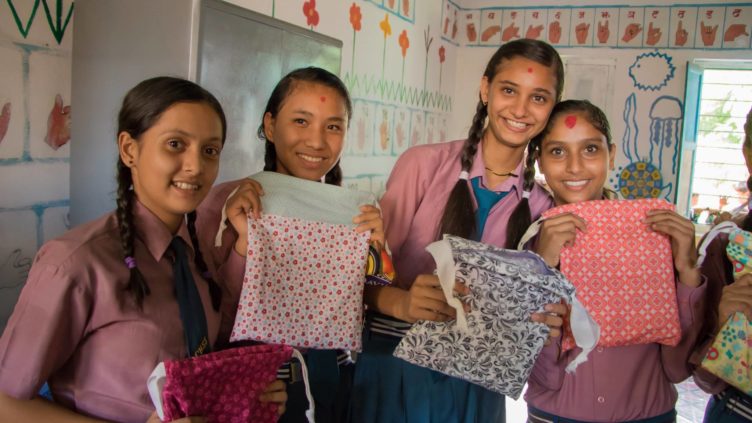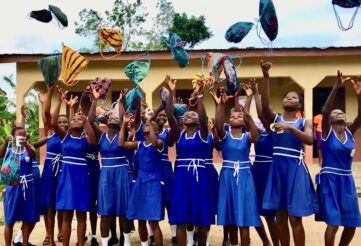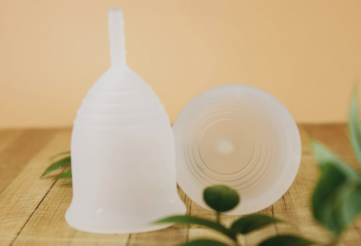Menstrual Stigma In Nepal: Key Insights (Part 1)

In the remote foothills of Western Nepal, menstruators face unique and devastating barriers to health, dignity and opportunity.
Here, the cultural practice of Chhaupadi banishes menstruating women and girls to cow sheds, mud huts or open fields during their period – exposing them to life-threatening elements and causing unbearable shame.
This extreme form of discrimination is deeply rooted in misconceptions of menstruation as impure, unhealthy and a harbinger of bad luck (passed down through generations).
Dismantling this harmful practice is at the core of Days for Girls Nepal’s work in the Kalikot region. Which starts with reframing menstruation as healthy and natural, through education! In 2017, DfG Nepal rolled out a two-year menstrual health Training and Education Program in 10 Kalikot villages – and partnered with Rural Senses, a monitoring and evaluation company, to measure its impact in two phases: pre- and post-education.
During Phase 1, Rural Senses collected data from two villages that had not yet completed the DfG education program (to serve as “controls”). Key insights from this phase, shared below, illuminate the daily struggle of menstruators held back by compounding cultural, financial and educational factors – and provide a critical roadmap for meeting the needs of women and girls in the region.
- Water security is a top concern for menstruating women; a quarter of those interviewed must travel more than an hour to reach a water source.
- Toilets are critical for maintaining hygiene, privacy and safety during menstruation; yet only one fifth of respondents use one.
- Menstruation prevents many girls from going to school, even if they want to. | “Girls should go to school every day. Then only can they achieve more and be equal to boys.”
- The prevalence of Chhaupadi compromises women’s basic needs for safety, health and comfort. Half of women feel completely unprotected during Chhaupadi; worry about access to food and shelter; and face threats from wild animals, rape and cold temperatures. | “During menstruation, women have died due to lack of shelter. Some have died of getting bitten by a snake, some have been eaten by animals. Without shelter, it is very hard for a girl during menstruation.”
- Religion and the influence of older family members drive the practice of Chhaupadi: “[We are told that] we should stay in the cow shed, otherwise god will be upset.”
- Menstruators who stopped practicing Chhaupadi were influenced by siblings, NGOs or their volition.
- Less than half of women use sanitary pads to manage menstruation, while the rest use homemade, reusable cotton pads.
- Most women have never heard of menstrual pads, but those who do hold them in high value. | “A sanitary pad is important in our life so that the blood will not go outside out underwear. It is also important in order to be healthy and live a long life.”
- Underwear is highly valued during menstruation, but financial access is a barrier. | “Wearing underwear helps to make our work easier and comfortable during menstruation.”
- Gender bias is prevalent in many households, and the female-to-male child ratio is 30% lower than the national average.
These learnings paint a vivid picture of menstrual inequity in rural Kalikot, shaped by deeply entrenched cultural stigmas, resource barriers and more. Next month, we will share how the DfG Training and Education program impacted the above factors – and improved quality of life for menstruators in the region. Stay tuned and check out the PDF below for details on Phase 1 findings!









